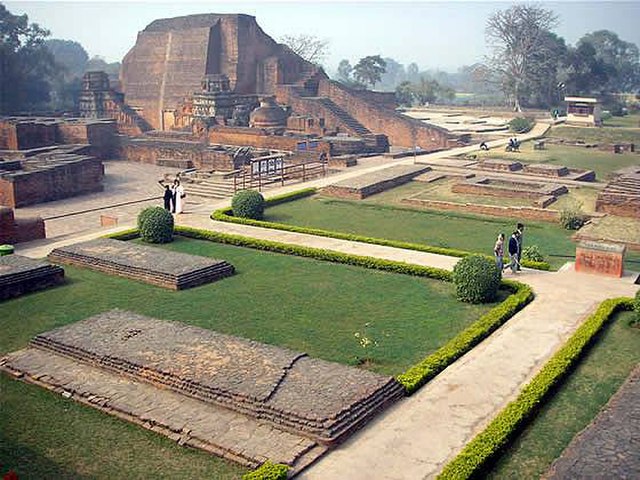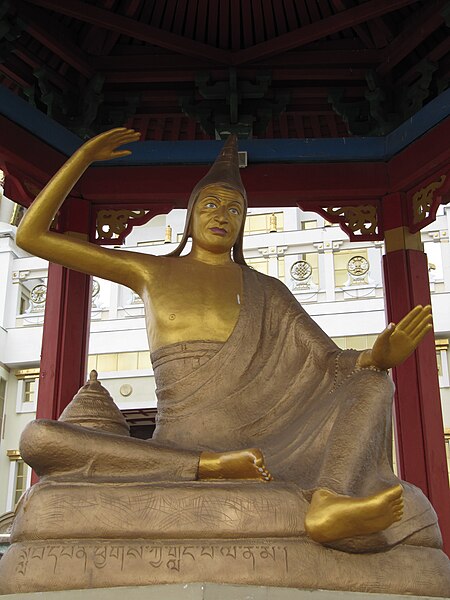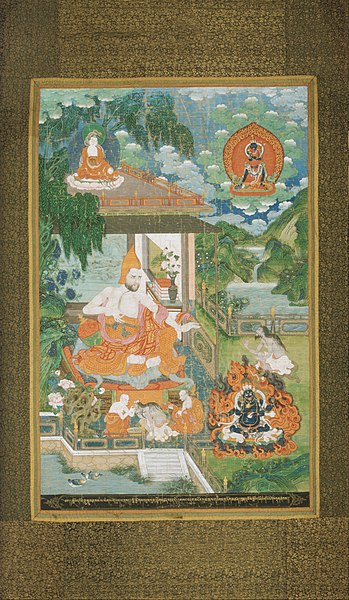Buddhist philosophy is the ancient Indian philosophical system that developed within the religio-philosophical tradition of Buddhism. It comprises all the philosophical investigations and systems of rational inquiry that developed among various schools of Buddhism in ancient India following the parinirvāṇa of Gautama Buddha, as well as the further developments which followed the spread of Buddhism throughout Asia.
The Buddhist Nalanda mahavihara was a major institution of higher-learning in ancient India from the 5th century CE until the 12th century.
Gautama Buddha surrounded by his followers. Illustration from an 18th-century Burmese watercolour, Bodleian Library.
Indian Emperor Aśoka and the elder Moggaliputta-Tissa, who is seen as a key thinker of the Vibhajyavāda tradition (and thus, of Theravada).
Buddhaghosa (c. 5th century), the most important Abhidharma scholar of Theravāda Buddhism, presenting three copies of the Visuddhimagga.
Buddhist logico-epistemology
Buddhist logico-epistemology is a term used in Western scholarship to describe Buddhist systems of pramāṇa and hetu-vidya. While the term may refer to various Buddhist systems and views on reasoning and epistemology, it is most often used to refer to the work of the "Epistemological school", i.e. the school of Dignaga and Dharmakirti which developed from the 5th through 7th centuries and remained the main system of Buddhist reasoning until the decline of Buddhism in India.
Dignaga. A statue in Elista, Russia.
Ācārya Bhāviveka Converts a Nonbeliever to Buddhism, Gelug 18th-century Qing painting in the Philadelphia Museum of Art
Ngok Loden Sherab







